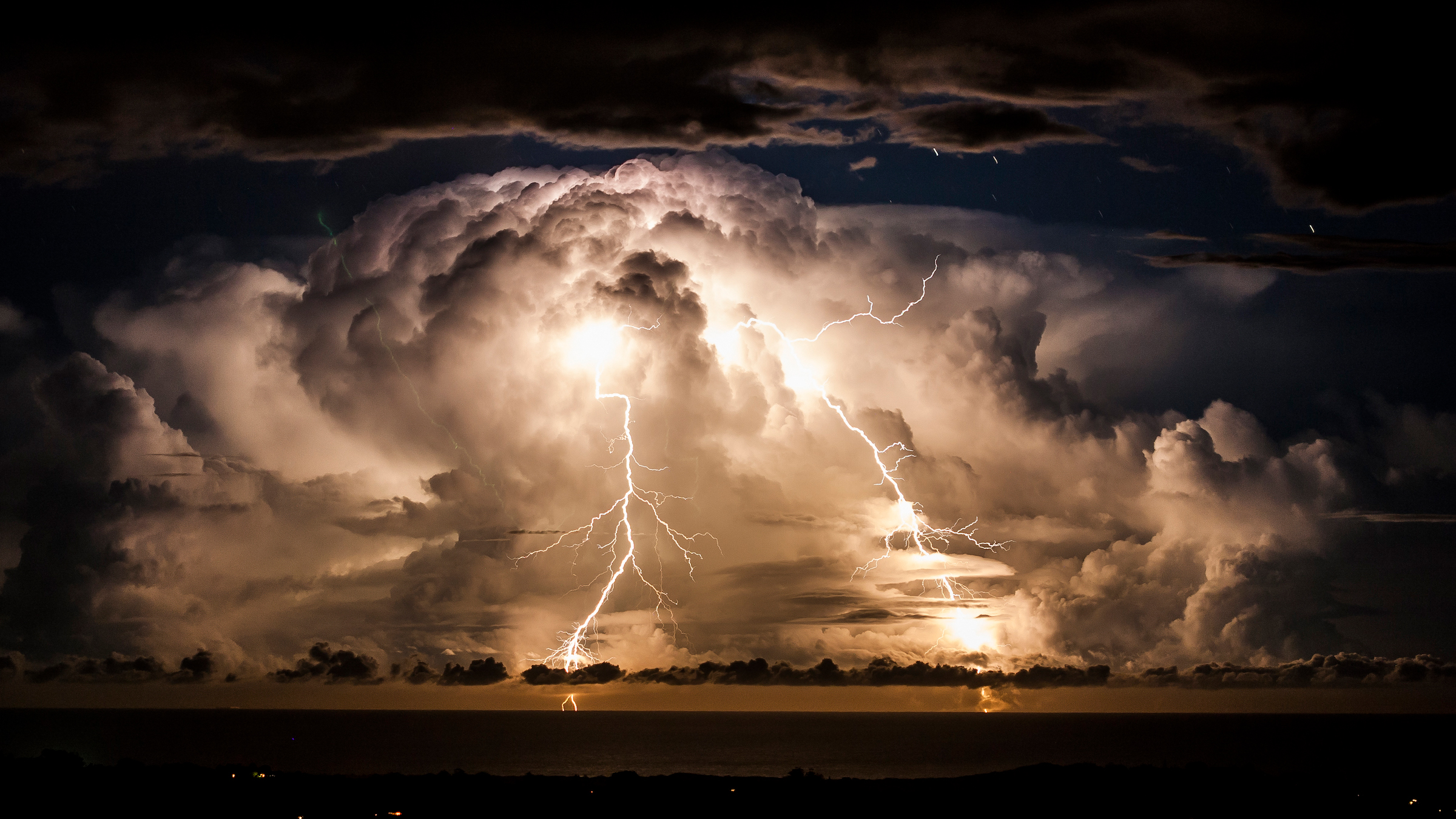What if the speed of sound were as fast as the speed of light?
Simultaneous thunder and lightning is only the beginning.

Get the world’s most fascinating discoveries delivered straight to your inbox.
You are now subscribed
Your newsletter sign-up was successful
Want to add more newsletters?

Delivered Daily
Daily Newsletter
Sign up for the latest discoveries, groundbreaking research and fascinating breakthroughs that impact you and the wider world direct to your inbox.

Once a week
Life's Little Mysteries
Feed your curiosity with an exclusive mystery every week, solved with science and delivered direct to your inbox before it's seen anywhere else.

Once a week
How It Works
Sign up to our free science & technology newsletter for your weekly fix of fascinating articles, quick quizzes, amazing images, and more

Delivered daily
Space.com Newsletter
Breaking space news, the latest updates on rocket launches, skywatching events and more!

Once a month
Watch This Space
Sign up to our monthly entertainment newsletter to keep up with all our coverage of the latest sci-fi and space movies, tv shows, games and books.

Once a week
Night Sky This Week
Discover this week's must-see night sky events, moon phases, and stunning astrophotos. Sign up for our skywatching newsletter and explore the universe with us!
Join the club
Get full access to premium articles, exclusive features and a growing list of member rewards.
The clouds are hanging low on the horizon; the air is sticky and sizzling with electricity. Suddenly, a silent bolt of lightning cracks open the sky. The boom follows a full four seconds later.
Compared with light, which moves at a stunning 186,000 miles per second (300,000 kilometers per second), sound waves are downright sluggish, moving through air at 0.2 miles per second (0.3 km per second). That's why you see lightning before you hear the thunder. But what would happen if the speed of sound suddenly were a million times faster — the same as the speed of light?
Of course, thunder would reach you at the precise moment of lightning. But that bolt of lightning would also look pretty eerie. Sound waves are composed of particles, each moving slightly enough to collide into the next. That creates areas of higher and lower density within the wave, said George Gollin, a professor of physics at the University of Illinois at Urbana-Champaign. Just think of a slinky: as the toy moves, the coils continually bunch together and then spread out again. Sound waves are similar. At slow speeds, that change in density is imperceptible. At the speed of light, it's a different story.
Related: What would happen if the speed of light were much lower?
"What would happen is you have pretty humid air [during a lightning storm], the sound wave comes through and squeezes stuff really hard, and then expands out and the pressure drops a lot," Gollin told Live Science. Because pressure corresponds to temperature, the sudden drop in air pressure after a clap of thunder would cause the humid air to freeze. You'd see the lightning bolt through a dense fog of ice crystals.
An ultra-fast speed of sound would completely change the way our world sounds. Voices would sound particularly strange, Gollin said. When we speak, our vocal cords vibrate to produce sound waves of many different frequencies, pumping them into the larynx, or voice box. There, waves of the same frequency add together to produce much bigger waves — which translates to louder sound. However, not all frequencies add together in the same way. Some sync up perfectly, while others actually interfere with one another, producing a smaller wave and a quieter sound. If the sound moved faster in air, it would change the way waves added together, making certain frequencies louder and others quieter. In sound waves, frequency translates to pitch, so what you get is a very odd sounding voice.
To get a sense of what we'd sound like in a universe where the speed of sound moved ultra-fast, imagine how you sound when you take a deep breath out of a helium balloon — like Mickey Mouse. That's because sound waves move three times faster through helium, said William Robertson, a professor in the department of physics and astronomy at Middle Tennessee State University. "And we're talking about making the speed of sound a million times bigger," Robertson said.
Get the world’s most fascinating discoveries delivered straight to your inbox.
And if the speed of sound were to suddenly speed up, it would wreak havoc on orchestras, Robertson said. When sound moves back and forth inside the cavity of an oboe or a trumpet, it produces a standing wave. These standing waves behave like those heavy ropes you see tethered to the wall at the gym. When a weight-lifter shakes them fast enough, waves begin oscillating up and down without appearing to travel across the rope. As the ropes are shaken faster and faster, the number of waves — in other words, their frequency — increases. Similarly, when the sound waves produced by wind instruments increase in speed, they increase in frequency. Because higher frequency means higher pitch, wind instruments would produce sounds so high in pitch, they'd be impossible for humans to hear. We would have to design wind instruments to be a million times longer to keep them in tune with the violins and cellos, Robertson said. (A change in the speed of sound as it moves through air wouldn't change the speed of sound along a string, he added.)
Alas, humans wouldn't survive to experience these spectacular changes. Even the soft whistle of a flute would blast anything in its vicinity to smithereens. Light travels in electromagnetic waves, which aren't composed of matter, but sound waves are mechanical — composed of particles colliding into one another. A molecule traveling at the speed of light would have "nearly infinite energy," Gollin said. It would blast through every particle it encountered, sending electrons flying and producing a "spray" of matter and antimatter — particles generated in ultra-high speed collisions that have properties opposite to those of matter.
"The effects would just be extraordinary," Gollin said.
Editor's note: Updated at 2:09 p.m. EST Nov. 30 to correct the article's explanation of how vocal cords and the voice box produce sound.
Originally published on Live Science.

Isobel Whitcomb is a contributing writer for Live Science who covers the environment, animals and health. Her work has appeared in the New York Times, Fatherly, Atlas Obscura, Hakai Magazine and Scholastic's Science World Magazine. Isobel's roots are in science. She studied biology at Scripps College in Claremont, California, while working in two different labs and completing a fellowship at Crater Lake National Park. She completed her master's degree in journalism at NYU's Science, Health, and Environmental Reporting Program. She currently lives in Portland, Oregon.
 Live Science Plus
Live Science Plus











